Scottish Rugby to host first Brain Health Clinic at BT Murrayfield
To continue its commitment to player welfare Scottish Rugby has today, 27 April, announced it will be hosting a new pilot brain health clinic at BT Murrayfield.
Providing a service initially to former Scotland players the pilot clinic, thought to be the first of its kind, will be delivered by Professor Craig Ritchie, Professor Psychiatry of Ageing at the University of Edinburgh and Director, Brain Health Scotland with invitations to undergo an assessment being issued from this week.
Described as providing a ‘brain health MOT’ the clinic will invite former Scotland players to take advantage of the service to help assess possible risks to future brain health.
Male and female players who wish to utilise the clinic will undertake a three-stage investigation phase involving blood testing, brain scanning and health/lifestyle interviews which will help build a picture of how the clinicians can best support the individual with a brain health plan.
Work is tailored to the individual patient providing risk profiling and prevention planning to help manage future health through help and advice on key lifestyle factors such as physical exercise, sleep, diet, sociability and keeping mentally active.
The patient will see the clinician at least 2-3 times over several months, with their GP notified of outcomes. Their results will provide a valuable benchmark to monitor future brain health.
The clinic concept is designed to develop both a service to former players exposed to contact sport and also a blueprint which forms the basis of a service that is being developed within the NHS for the public and will be rolled out nationally by 2025.
It also has the potential to be developed internationally and clinics delivered across the wider global rugby community.
The Brain Health Clinic has been made possible by bringing together world-leading brain health medical experts based in Scotland and the UK.
Brain Health Scotland, Alzheimer Scotland, the University of Edinburgh and World Rugby have all contributed time, expertise and resources towards the ambition of establishing the clinic and its objectives alongside Scottish Rugby, which is funding and hosting the pilot to continue its on-going role in supporting medical initiatives delivering player welfare programmes.

Former Scotland Internationalist and British & Irish Lion, Gordon Bulloch, Professor Craig Ritchie, Professor of Psychiatry of Ageing at the University of Edinburgh, Scottish Rugby’s Chief Medical Officer Dr James Robson and Former Scotland Internationalist, Jilly McCord at the Brain Health Clinic launch at BT Murrayfield.
Scottish Rugby’s Chief Medical Officer, Dr James Robson said: “I am delighted we are now ready to invite former Scotland players to the pilot Brain Health Clinic at BT Murrayfield.
“Our first discussions on opening such a clinic began over two years ago and it is only down to the vision and commitment of our colleagues at Brain Health Scotland, Alzheimer Scotland, the University of Edinburgh World Rugby and NHS Scotland that we are able to now begin providing this unique service, initially to former players and hopefully in the future out to the public at large.
“While a lot is known about physical and mental health, the health of our brain is an area we continue to learn more about and the clinic is a ground-breaking and essential step in taking that understanding further, and supporting those who have played rugby as they enter later life.”
Professor Craig Ritchie said: “Through Brain Health Scotland and this collaboration with Scottish Rugby we are bringing a compelling evidence base into practice. We now know that brain changes take place in mid-life that if left unmanaged could lead to dementia in later life.
“We also know a lot about the risk factors for these changes and what can accelerate or slow them down.
We still need to know more, but we know enough to start working with, and for, former players to help them manage their brain health.
“Very soon, we expect very similar services to be launched for the general public within the NHS. The collaboration with Scottish Rugby has really helped accelerate the parallel work we are doing with the NHS.”
Former Scotland Internationalist and British & Irish Lion, Gordon Bulloch said: “I’m happy to support this initiative and the work the new Brain Health Clinic will deliver. None of us are getting any younger and no-one knows what is around the corner so it’s best to be as prepared as you can.
“I think the work that’s gone in so far to develop the clinic to offer this service to former players can only be beneficial. Brain health and physical health go hand in hand and the more we can understand this area the more support we can give players of earlier generations and those who are playing now in the future.”
Former Scotland Internationalist, Jilly McCord said: “It is great to see Scottish Rugby, alongside medical partners, take such a pro-active approach to the long term health of current and former players.
“It is particularly reassuring to know that this service will be more than a one off assessment and will continue to offer help and advice in the future. I know that many former players worry about the impact that rugby may have had on their brain, and this is a very positive step in addressing these concerns and offering tangible support.”
Tags
Related news
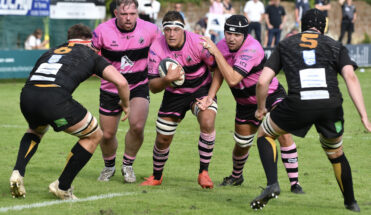
Arnold Clark Premierships feature match: Heriot’s v Ayr

Fagerson to reach 50 in Australia finale
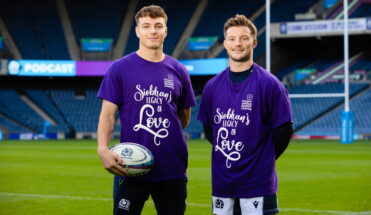
Supporting Siobhan’s Legacy of Love

Scottish Rugby youth panellists announced
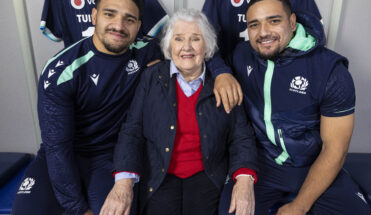
Tuipulotu brothers reunited with their ‘Greenock granny’
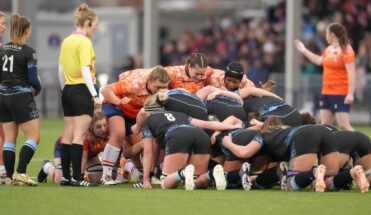
Celtic Challenge 2024/25 fixtures announced
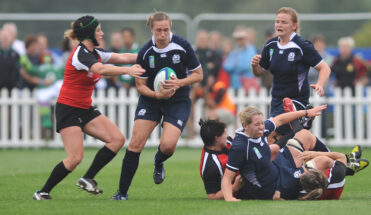
Donna Kennedy inducted into World Rugby Hall of Fame

Stafford McDowall to captain Scotland A against Chile this weekend

Celtic Challenge 2024/25 Head Coaches announced






